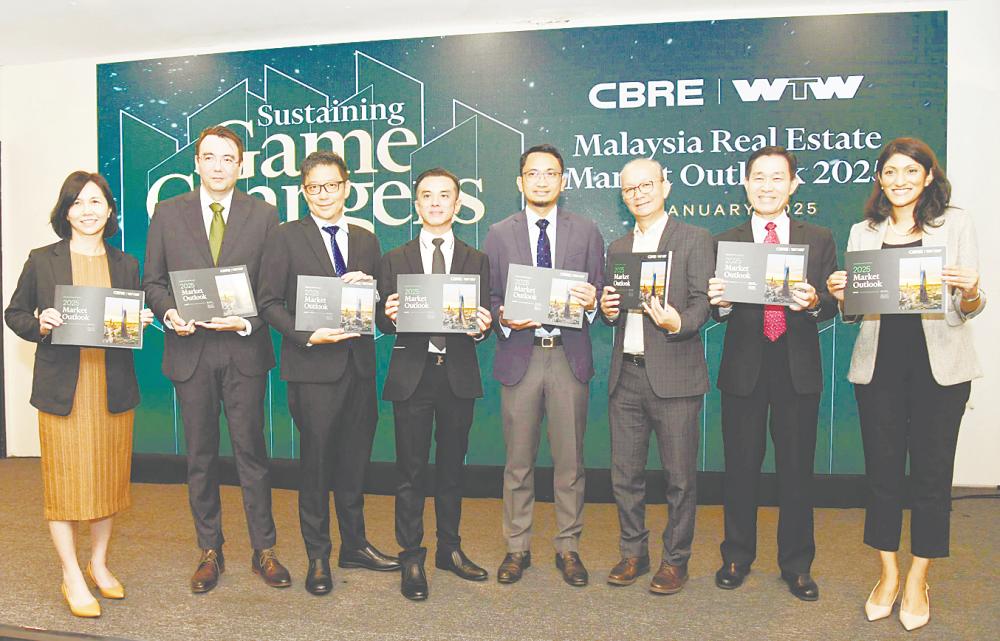KUALA LUMPUR: Market players and stakeholders should avoid speculative property plays in the Johor-Singapore Special Economic Zone (JS-SEZ) to prevent repeating the past speculative booms of Iskandar Malaysia (Southern Economic Corridors), which could inflate entry-level prices and destabilise the market, urged real estate agency CBRE WTW Valuation & Advisory Sdn Bhd.
Group managing director Tan Ka Leong said that with tax breaks, special travel passes, and enhanced connectivity through the RTS link, the JS-SEZ is expected to rejuvenate retail and drive increased cross-border economic activity.
“The announcement of tax incentives, in fact, mirrors what was done 15 years ago when Iskandar Malaysia or the Southern Economic Corridors at the time was first introduced. During the 2010-2013 period, there was a lot of competition and speculative activity,” he told a press conference at CBRE/WTW’s 2025 market outlook today.
While the JS-SEZ will positively impact various sectors, Tan stressed that economic growth should be prioritised over speculative property plays.
“If the focus shifts to property first, we risk repeating past mistakes where inflated property prices harm long-term sustainability,” he added.
Tan said Johor has experienced more significant impacts from such cycles compared to other parts of Malaysia.
“I believe the intention behind offering the special tax incentives is to attract investors to the special economic zone. The aim is also to encourage skilled and knowledgeable workers to enter the JS-SEZ area, with special fixed-rate income tax provisions for them.”
He added that this initiative aims to create job opportunities that contributes to the growth of the economy and increases in household income eventually.
“Within five years, they intend to scale job opportunities. This is all part of the broader goal to grow the economy and raise household incomes,” Tan said.
CBRE WTW adviser Foo Gee Jen pointed out that analysts from securities houses have predicted that property and construction sectors will benefit the most.
“I beg to differ. If we follow that cycle, it won’t be sustainable. The ecosystem must be driven by the economy first. Property should be the last to follow,” he said.
He explained that the economy should create job opportunities, which in turn creates demand for property and not the other way around. “We should not repeat the mistake of letting property play dominate first, which drives up entry-level prices and makes it unaffordable for everyone,” he said.
According to analysts, property and construction players stand to be the biggest beneficiaries of the JS-SEZ. Hong Leong Investment Bank Bhd said contractors are the immediate beneficiaries of the JS-SEZ through construction jobs in the zone, which will require infrastructure (for example, waste management, water, electricity, and roads), as well as industrial buildings and possible renewable energy projects.
“In our view, the implementation of the JS-SEZ is positive for contractors and property developers. Potential stocks related to the JS-SEZ include Kimlun Corp Bhd, Sunway Construction Group Bhd (SunCon), Sunway Bhd, IOI Properties Group Bhd, UEM Sunrise Bhd, and Itmax System Bhd,“ it said.
RHB Investment Bank noted that road infrastructure projects would also create opportunities, with the JS-SEZ covering 3,500 sq km. Foreign direct investments into the zone would create demand for industrial buildings and offices.
For exposure to the JS-SEZ, RHB’s top stock picks include UEM Sunrise Bhd and Sunway Bhd.
CIMB Securities highlighted IJM Corporation Bhd and Sunway as potential strong contenders for works under the Light Rail Transit or Autonomous Rapid Transit projects being considered by the state. Given the stiff competition for public infrastructure projects, CIMB recommended Malayan Cement Bhd and Ann Joo Resources Bhd as alternatives for potential multiyear building materials orders from the JS-SEZ.









